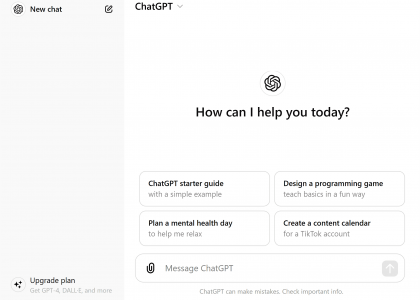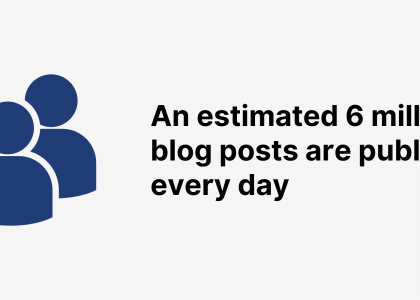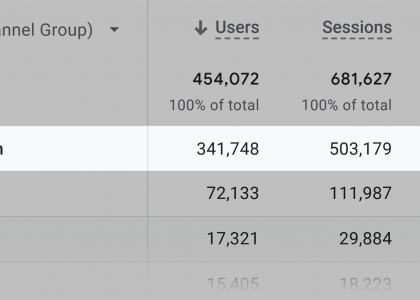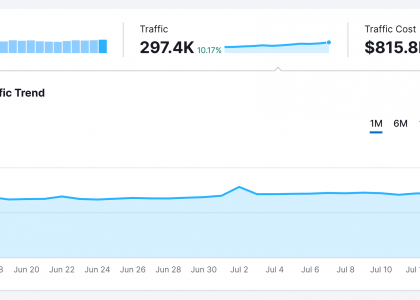Let’s face it: SEO can feel like a complex puzzle. You hear all about its power to boost website traffic and conversions, but actually budgeting for it is a whole different story. While it seems daunting, with the right knowledge and strategies, you’ll be able to invest wisely and see tangible returns on your efforts. This guide will equip you with the proper knowledge and strategies you need to invest wisely, see tangible returns on your efforts, and conquer your SEO budget.
SEO 101: Why Budgeting Matters
At its core, SEO is the art and science of getting your website seen by the right people at the right time. The higher you rank in search results (think Google), the more organic traffic (free website visitors) you attract. This translates to increased brand awareness, leads, and, ultimately, revenue growth.
But SEO is a marathon, not a sprint. That’s why budgeting wisely is crucial to unlocking its long-term potential. Here’s what influences your SEO budget:
Understanding Your Business Needs: Setting Your Sights
Before examining costs, define your business goals. Are you more focused on increasing website traffic or generating more qualified leads and sales? How will you justify a long-term investment in organic traffic? Identifying these goals will help you decide how you want to allocate resources.
Don’t forget your industry’s competitive landscape. The fiercer the competition, the more resources you might need to invest in strategic SEO tactics.
Finally, SEO doesn’t operate in isolation. Look at your existing marketing budget. Where does SEO fit in? Can you reallocate some resources to fuel your SEO efforts?
In-House vs. Agency vs. Freelancer for SEO
Now, the million-dollar question: Do you tackle SEO yourself (in-house) or outsource it to a seasoned SEO expert?
Hiring In-House
Opting for an in-house SEO team is a wise choice if you have a steady stream of SEO tasks that justify a full-time position. This approach offers direct control and immediate access to your team members. However, it can be costly, requiring a substantial investment in salary and tools. Additionally, management and oversight will be crucial to ensure productivity and effectiveness.
Considerations:
Significant investment in salary and full-time employment costs.
SEOs often specialize in specific areas (e.g., Technical SEO, Content Optimization), requiring sufficient work in one domain.
Management and oversight are necessary.
Budgeting for SEO tools is essential.
Agency
Hiring an agency offers a balance between cost and expertise. While the hourly rate may be higher, the overall cost can be more manageable than hiring in-house. Agencies bring a diverse range of tools and up-to-date industry knowledge, providing a comprehensive and self-managed solution for your SEO needs.
Considerations:
Higher hourly cost but potentially cheaper overall than in-house hiring.
Access to a variety of tools and templates as part of their retainer.
Generally more current with industry changes.
Requires less direct management.
Freelancers
Freelancers can be the most cost-effective option, though they come with their own set of challenges. They tend to be less expensive but may require you to budget for additional tool costs. Freelancers might not be as updated or flexible as agencies and can be less reliable, making it essential to vet them thoroughly before hiring.
Considerations:
Higher cost per hour but typically the most affordable overall option.
Need to budget for additional SEO tools.
Might not be as up-to-date or adaptable as an agency.
Generally more self-managed than in-house but less so than an agency.
Potentially less reliable, with higher risks of availability issues.
Going in-house can be cost-effective, and you maintain complete control. But be warned, SEO requires expertise and consistent time commitment. Do you have the bandwidth to learn the ropes and dedicate resources long-term?
Hiring an SEO agency brings expertise, proven strategies, and access to advanced tools. This can be a major time-saver. However, agencies come with a price tag, and you might relinquish some control.
The best choice depends on your resources and comfort level.
Breaking Down SEO Cost Components
Now that you understand the landscape, let’s explore the different areas where you may want to spend your SEO budget:
Keyword Research
Keywords are the gold mine of SEO. You need to find the search terms people are actually using to find businesses like yours. Tools like Google Keyword Planner and Ahrefs can help with this (some have free versions, and some have paid plans).
Content Creation
High-quality, SEO-optimized content is like a magnet for website visitors. Think blog posts, landing pages, infographics – the possibilities are endless!
On-Page Optimization
This involves fine-tuning your website’s elements for search engines. Think title tags, meta descriptions, and image alt text. Plugins can simplify this process – some offer free versions while others have paid plans.
Technical SEO
This might sound intimidating, but it basically means making sure your website is healthy and user-friendly for both humans and search engines. We’re talking about website speed, mobile-friendliness, and structured data (a fancy way of organizing your website’s information for search engines). Depending on your website’s complexity, you might need a developer to tackle this area.
Link Building
Imagine backlinks as votes of confidence for your website. The more high-authority websites link to you, the better your ranking potential. There are white-hat link-building strategies (the good kind!), but outreach campaigns can take time and effort.
Digital PR
Digital PR involves using online publications and influencers to promote your brand and gain high-quality backlinks. It boosts your website’s authority and visibility, similar to traditional PR but focused on digital coverage.
SEO Consulting
SEO consultants provide expert advice tailored to your business, helping you navigate SEO complexities. They can audit your site, develop strategies, and ensure best practices, with fees varying by expertise.
Local SEO
For local businesses, optimizing for local search is crucial. This includes managing your Google My Business profile, earning local citations, and garnering positive reviews to enhance local search visibility.
Conversion Rate Optimization
CRO is about converting visitors into customers by analyzing user behavior and making site adjustments. This might include A/B testing and refining calls to action to improve conversion rates and maximize the ROI of your SEO efforts.
Building Your Budget
Here’s a range to give you a general idea (these are estimates, and actual costs can vary):
Too cheap: Less than $1,000/month
Small business: $1,000 – $2,500 per month
Medium business: $2,500 – $5,000 per month
Enterprise: $5,000+ per month
Remember, this is just a starting point. The key is to be flexible and adjust your budget as your SEO efforts progress and your needs evolve.
Measuring Your SEO ROI
ROI (Return on Investment) is your goal when it comes to SEO. It essentially measures the value you get from your SEO efforts. Here are some key metrics to track your success:
Organic impressions in Google Search Console
Organic traffic: This is the free website traffic you get from search engines.
Organic conversions: This could be anything from a contact form submission to an online purchase.
Tools like Google Search Console and Google Analytics are your best friends for tracking SEO performance.
Conquering the SEO Budget
By understanding your business needs, exploring in-house vs. outsourced options, and allocating resources wisely across different SEO components, you’ll be well on your way to taming the SEO budget beast. Remember, SEO is a long-term game, so consistency and a data-driven approach are key. Reach out to Volume Nine to get started with a strategic and targeted plan that allows you to harness the power of SEO and grow your website traffic and conversions.





